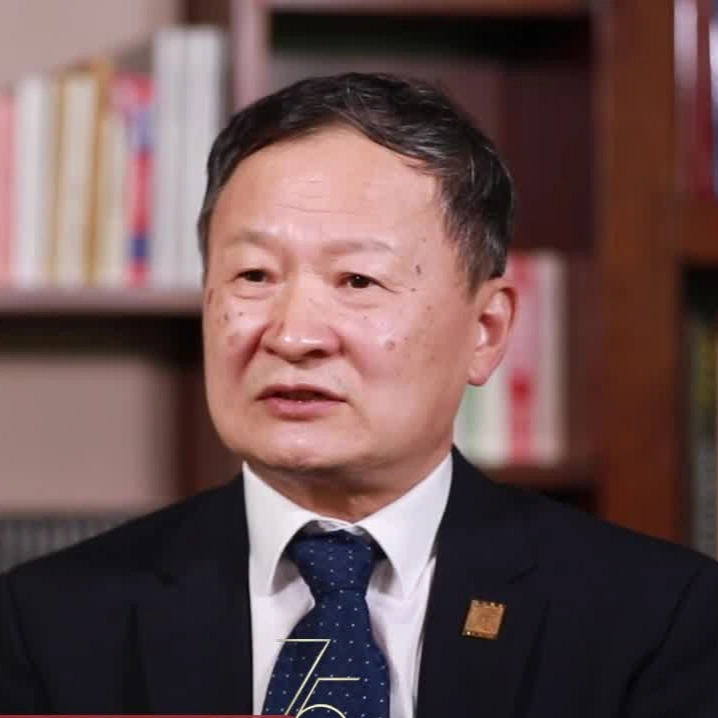How Will Assad's Fall Benefit China?

On November 8, Syrian opposition forces captured the capital, Damascus, marking the end of President Bashar al-Assad’s government. On the same day, Voice of America Chinese quickly declared that “China has lost an ally,” claiming that China’s Belt and Road investments in Syria would suffer losses amounting to tens of billions of dollars.
However, Chinese strategist Professor Wang Xiangsui argues that VOA’s assessment is entirely wrong. He believes the Syrian crisis is instead offer new opportunities for the Belt and Road Initiative (BRI) in the Middle East and could even accelerate the collapse of U.S. unipolar hegemony.
Firstly, Syria’s strategic value to the BRI is overhyped by the Western Media.
Syria is not located along the overland route of BRI. Additionally, Syria is not a major oil-producing country. According to British Petroleum’s statistics, Syria accounted for only 0.05% of global oil production as of 2016. China’s Ministry of Foreign Affairs reported that bilateral trade between China and Syria amounted to just $358 million in 2023. In comparison, China’s total import-export trade volume in 2023 was $5.94 trillion, according to the National Bureau of Statistics. This means Syria’s role in China’s foreign trade is negligible, with a direct impact of only 0.006%. Clearly, VOA has grossly exaggerated the implications of Syria’s situation for China’s overseas interests.

Secondly, the upheaval in Syria could strengthen Iran-China cooperation.
In March 2021, China and Iran signed a 25-Year Comprehensive Cooperation Plan. However, progress in certain areas, particularly the oil and gas industries, has been slow due to disagreements over pricing and infrastructure development.
Three years ago, Iran was reluctant to engage in full-scale confrontation with the U.S. or military conflict with Israel. But the civil war in Syria has fragmented Iran’s sphere of influence, cornering it in terms of core national interests.
As direct conflict with the U.S. and Israel becomes increasingly inevitable, Iran’s need for collaboration with China will grow, creating greater urgency for substantive cooperation. This is advantageous for advancing the Belt and Road Initiative. Previously, one of the biggest challenges for the BRI was that China needed to explain to the Middle Eastern countries that the benefits of changing the status quo outweigh the risks, leaving it in a passive position during negotiations. Now, if the turmoil in Syria heightens the sense of urgency among international communities, they will be more inclined to cooperate with China, which would significantly benefit the BRI’s expansion.
Thirdly, Israel’s opportunism in Syria will deepen U.S. entanglement in the Middle East, hastening the decline of U.S. hegemony.
According to Al Jazeera, on December 8, Israeli forces occupied the Syrian-controlled area of the Golan Heights. This marks the first open entry of Israeli ground forces into Syrian territory since the Yom Kippur War. Such a military venture is bound to exacerbate tensions between Israel and the Arab world. In the next four years, this could trigger more conflicts, creating additional aid burdens for the U.S. as it supports Israel. Meanwhile, the White House will have no choice but to foot the bill, as the Trump administration has been dominated by pro-Israel officials. Future U.S. Ambassador to Israel Mike Huckabee and Secretary of State Marco Rubio are staunch Israel supporters, and even Trump’s daughter is married into a Jewish family.
From Rome to Britain, every empire’s decline begins with a mismatch between ambition and capability. Trump recognized that spreading resources thin in Ukraine and Israel would weaken the U.S. in its competition with China and sought to refocus through his “America First” policy. However, Israel’s opportunism in Syria will make it impossible for him to realise this vision, as Israel will always take precedence over the U.S. in the current administration.
Prof. Wang points out that there will be no second “American Century.” What follows will not be a “Chinese Century” either but rather a truly multipolar world. What we are witnessing in Syria is an ulcer in the U.S.-led world order. With Syria now fragmented among various factions, we are witnessing the collapse of the old order, which has yet to give rise to a new one. During this transitional phase, nations have significant opportunities. However, it is evident that multipolarity will emerge as the dominant global trend.
Editor: Charriot Zhai
https://www.voachinese.com/a/a-look-at-sino-syrian-relations-upon-the-collapse-of-the-assad-regime-20241208/7891788.html
https://web.archive.org/web/20110615211258/http://www.bp.com/assets/bp_internet/globalbp/globalbp_uk_english/reports_and_publications/statistical_energy_review_2011/STAGING/local_assets/pdf/statistical_review_of_world_energy_full_report_2011.pdf
https://www.mfa.gov.cn/web/gjhdq_676201/gj_676203/yz_676205/1206_677100/sbgx_677104/
https://www.mfa.gov.cn/web/gjhdq_676201/gj_676203/yz_676205/1206_677172/sbgx_677176/
http://big5.www.gov.cn/gate/big5/www.gov.cn/lianbo/fabu/202404/content_6945047.htm
https://www.aljazeera.com/news/2024/12/8/israel-seizes-buffer-zone-in-syrias-golan-heights-after-al-assad-falls





SpookySwap
Phantom takes second spot in Apple’s US App Store utilities category
RenBridge BTC swap
Always smooth with RenBridge.
RenBridge
Just tried RenBridge today — blown away by how fast it works.
anyswap bridge
I feel way more confident about providing liquidity now.
apeswap
apeswap